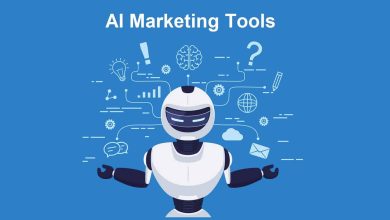
As we venture into 2024, businesses are confronted with the imperative task of navigating new technological advancements, to enhance and create tailored customer experiences. These AI-powered mechanisms are helping organisations refine and inform their SEO strategies by providing real-time metrics and insights that inform consumer behavioural patterns.
So where will this leave SEO in 2024 and the years ahead? One truth becomes increasingly apparent in all of this, artificial intelligence is not just the future; it’s the present.
How Generative AI is Impacting Search and SEO
2023 marked a pivotal year for the SEO industry, transitioning from solely AI-driven efforts to a more human-inclusive approach. While AI remains vital for SEO advancements, human oversight is still required for reviewing and refining AI-generated content to ensure accuracy and legal compliance. This shift towards a collaborative AI-human approach is becoming increasingly important as we move forward.
The integration of Large Language Models (LLMs) and personalised experiences into SEO strategies marked the beginning of a new era for the search landscape. From LLMs to personalised and voice-based search experiences, AI and machine learning are poised to play a central role in shaping future SEO initiatives. To adapt to this evolving AI landscape, industry leaders must prioritise enhancing search result quality and user experiences, aligning them with changing consumer habits.
Moreover, SEO professionals must reassess their metrics and align them with broader business objectives to showcase the true value of SEO to executives and stakeholders. By focusing on metrics that directly impact crucial business factors like e-commerce conversions and email sign-ups, marketers can demonstrate the tangible benefits of SEO in driving organisational success. This holistic approach underscores the importance of integrating AI advancements with human expertise to navigate the complexities of the modern SEO landscape effectively.
How business leaders can leverage the power of AI to enhance SEO
To succeed in a world of generative AI-based search, businesses must adapt to the changing market, without taking shortcuts.
Here are four steps to success:
1. Prioritise Technical SEO by focusing on improving page load times, and implementing structured data, which are some of the most important aspects of your website.
2. Embrace AI-based Large Language Models by leveraging your data to train artificial intelligence in your brand voice. This facilitates standardised content publication and streamlines customer service processes, leading to smoother interactions for customers.
3. Create hyper-personalised customer experiences by utilising AI-based LLMs to understand customer behavioural patterns and trends on keyword research and SEO. Ask yourself: do you know what your consumer wants and do you understand their needs?
4. Revamp SEO strategies by using the power of AI to innovate and adapt for consumers, empowering businesses to stay ahead of the curve in a changing digital world.
What We Can Expect in 2024 and the Years Ahead
As we adapt to this new AI-powered era of search, it is apparent that adaptability and agility are becoming paramount for businesses of all sizes. To keep up with the demands that the modern digital world brings, organisations must consider AI in their SEO strategies going forward, and invest in tools and platforms to engage with consumers in a personalised way, streamline operations and maximise time use. Failing to adopt this approach and utilise AI to their advantage may put businesses at a disadvantage resulting in time loss, delayed engagement and a loss of customer interest.
As businesses prepare for the years ahead, staying updated with SEO trends and strategies is vital for maintaining competitiveness. Infusing AI, prioritising quality content and understanding consumer behaviour will be key factors for success. It’s not just about reaching the top of search engine results pages anymore – it’s about connecting with consumers in ways that matter to them and sustaining that position by delivering high-quality, relevant content aligned with business goals.
By embracing these changes and providing outstanding user experiences, businesses can position themselves as leaders in this changing environment.





